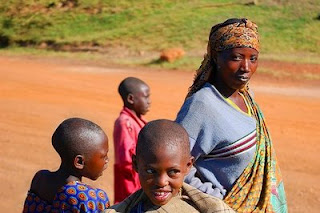
Climate change, increasing population, and overuse of land, fisheries, and water supplies
threaten to undermine development in Uganda, writes Pius Sawa for the Africa Science News Service. Olive Sentumbwe Mugisa, the World Health Organization’s (
WHO) population and health advisor in Uganda, warns that Uganda’s economic growth is not keeping pace with its population growth, which is among the fastest in Africa, due to a
fertility rate of 6.7 children per woman.
Native Ugandan Gladys Kalema-Zikusoka spoke about the interconnectedness of population, health, and environment issues in Uganda in two events at the Wilson Center in May of this year. Kalema-Zikusoka is the founder and director of Conservation Through Public Health (CTPH), which works to conserve the habitat of the endangered mountain gorilla by strengthening community health services and providing communities with information about the benefits of family planning.
Kalema-Zikusoka is also the author of an upcoming issue of Focus, the Environmental Change and Security Program’s series of occasional papers featuring Wilson Center speakers. Her piece describes CTPH’s work in and around Bwindi Impenetrable National Park, where it has found great success in addressing health, conservation, family planning, and livelihood issues in an integrated fashion.
Photo: Woman and children in southern Uganda. Courtesy of flickr user youngrobv.
 Climate change, increasing population, and overuse of land, fisheries, and water supplies threaten to undermine development in Uganda, writes Pius Sawa for the Africa Science News Service. Olive Sentumbwe Mugisa, the World Health Organization’s (WHO) population and health advisor in Uganda, warns that Uganda’s economic growth is not keeping pace with its population growth, which is among the fastest in Africa, due to a fertility rate of 6.7 children per woman.
Climate change, increasing population, and overuse of land, fisheries, and water supplies threaten to undermine development in Uganda, writes Pius Sawa for the Africa Science News Service. Olive Sentumbwe Mugisa, the World Health Organization’s (WHO) population and health advisor in Uganda, warns that Uganda’s economic growth is not keeping pace with its population growth, which is among the fastest in Africa, due to a fertility rate of 6.7 children per woman. A Publication of the Stimson Center.
A Publication of the Stimson Center.




